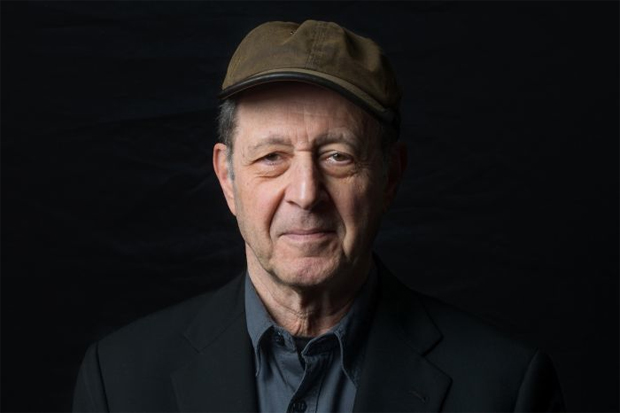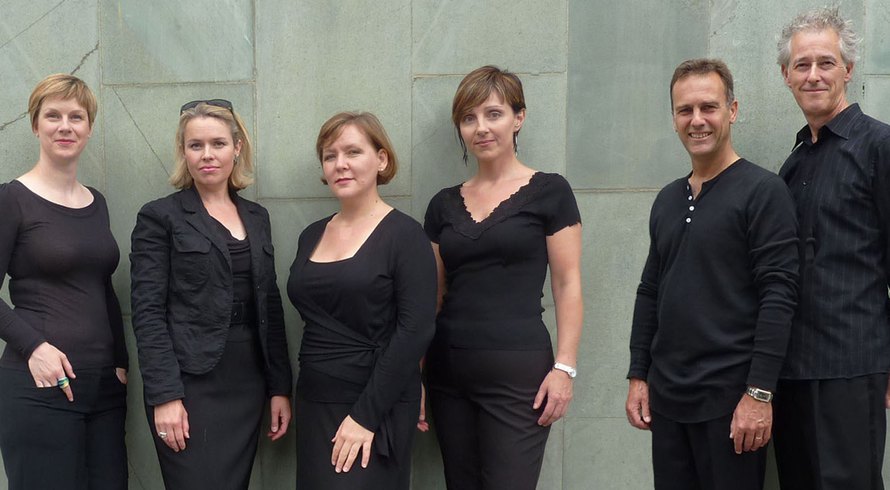Single-composer programmes can be a bit dicey and there was a bit of trepidation approaching this one as Steve Reich is not a composer of massive range: he has been diligently tilling the same patch of soil since the 1970s. But alongside some Reich-being-Reich was a fascinating UK premiere that visits new territory and the revival of an often-overlooked masterpiece from his imperial phase.
The Colin Currie Group has had a long association with Reich (pictured below), including commissioning two of Tuesday night’s four pieces. It is at heart a percussion ensemble, expanded here by the addition of strings and woodwind for some numbers. Currie himself played the vibraphone in one piece but elsewhere conducted in a rough-and-ready style, beating time much like a Victorian schoolmaster beating an errant ward, in music that does not demand interpretative nuance but needs more than just a traffic policeman.
 Runner, which opened, dates from 2016 and is full of the pulsing energy and tight canons that are Reich’s stock in trade. It is an apprealing if familiar sound, with sustained strings and chirping woodwind smoothing out the runaway pianos. There was also something comfortingly familiar about the soundworld of the Quartet for two vibraphones and two pianos of 2013. This had a jazz sensibility, a hint of Taxi Driver, with its jagged outlines and chiming vibes chords. Currie himself and Sam Walton were rock solid in the rhythmic complexities and there was driving piano work by Philip Moore and Simon Crawford-Philips, but there was nothing particularly striking about the piece.
Runner, which opened, dates from 2016 and is full of the pulsing energy and tight canons that are Reich’s stock in trade. It is an apprealing if familiar sound, with sustained strings and chirping woodwind smoothing out the runaway pianos. There was also something comfortingly familiar about the soundworld of the Quartet for two vibraphones and two pianos of 2013. This had a jazz sensibility, a hint of Taxi Driver, with its jagged outlines and chiming vibes chords. Currie himself and Sam Walton were rock solid in the rhythmic complexities and there was driving piano work by Philip Moore and Simon Crawford-Philips, but there was nothing particularly striking about the piece.
 Which was not the case with Traveler’s Prayer, this UK premiere coming as part of a tour introducing it around the world. Written during lockdown in the composer’s 85th year, this is as untypical as anything I have ever heard by him. The ubiquitous pulsation is gone, replaced by sustained chords supporting two tenors singing melodic lines based on Jewish models. His normally straightforward canons are replaced by freer, more complex ones – in retrograde or inversion – which wind endlessly round each other. Will Wright and Ben Hymas of Synergy Vocals (pictured above), had a stillness in their singing, a fragility helped by their restrained vibrato and the doubling of the voice parts with strings. The effect was haunting – maybe not as immediately alluring as, say, Runner, but ultimately more nourishing.
Which was not the case with Traveler’s Prayer, this UK premiere coming as part of a tour introducing it around the world. Written during lockdown in the composer’s 85th year, this is as untypical as anything I have ever heard by him. The ubiquitous pulsation is gone, replaced by sustained chords supporting two tenors singing melodic lines based on Jewish models. His normally straightforward canons are replaced by freer, more complex ones – in retrograde or inversion – which wind endlessly round each other. Will Wright and Ben Hymas of Synergy Vocals (pictured above), had a stillness in their singing, a fragility helped by their restrained vibrato and the doubling of the voice parts with strings. The effect was haunting – maybe not as immediately alluring as, say, Runner, but ultimately more nourishing.
The finale was Tehillim (1981), in which Reich first explored his Jewish heritage. Here the Synergy female voices outlined dancing melodies with the percussion – including handclapping and some virtuoso maracas work – providing a rhythmic support. Currie earned his corn as a conductor, laser-sharp in his negotiation of the constantly changing metre. The Coplandesque open spaces of the third movement had a captivating calm before a dazzling sprint to the line brought the full Festival Hall audience to its feet.















Add comment